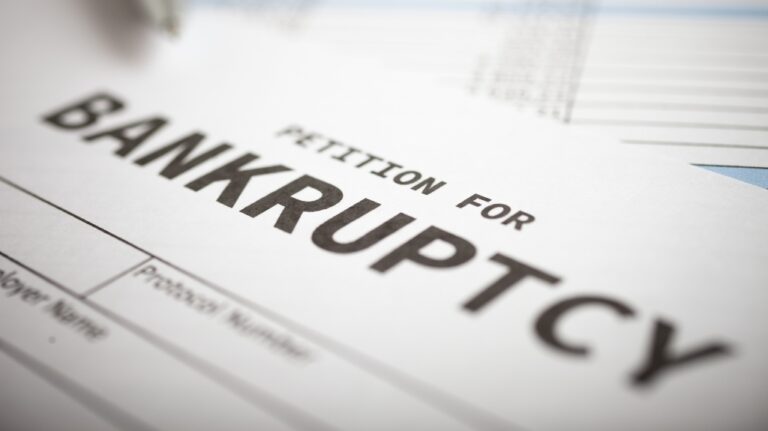What Is a Chapter 13 Repayment Plan?
A Chapter 13 bankruptcy is very different from a Chapter 7 bankruptcy. Chapter 7 is a straightforward bankruptcy filing and simply gets rid of your dischargeable debt when it closes. Chapter 13, however, is a repayment plan.
It is for debtors who:
- Are above the income threshold for their household size
- Have unprotected assets
- Or for those who are behind on a car or home and need to get caught up
Because this is a repayment plan, your bankruptcy attorney has to take many things into account—your expenses, total debt, and, perhaps most importantly, your income. Since this largely hinges on what you bring in each month, any substantial income changes could adversely affect your case.
What are your options if your income drops? This depends on the circumstances. We will go over a few possible options. Keep reading to learn more about what can be done if your income decreases while going through Chapter 13 bankruptcy.
Contact our Myrtle Beach bankruptcy firm today to find out more about how Lam Law Firm, LLC can help you.
MORATORIUM
One of the most common solutions to a loss in income is a Moratorium. A moratorium is simply a 1-3 month break in your regular payments and is useful for temporary drops in income. This is not an automatic option.
If you have already had a moratorium, you will most likely not be eligible for a second one. Also, one of the conditions of the break is that you are current on your payments up until the point of your moratorium. If you are awarded a moratorium, the length of time you get depends on when you filed and when your plan was confirmed.
For example, if you filed in January of this year and your plan was confirmed in April, you should be able to have a full 3-month break. Speak with your bankruptcy attorney to figure out if this is a viable solution.
PAYMENT DECREASE
If your change in income is permanent, you may be eligible for a lower Chapter 13 payment. This option is largely dependent on what your payment goes towards.
Can Chapter 13 Payments Be Reduced?
Your attorney may not be able to get a lower payment approved if your payment mainly goes towards paying:
- The regular monthly payment on your home
- Arrearage on your home
- And/or your vehicle(s)
However, if you are paying a large percentage of your unsecured debt, your attorney may be able to drop the payment to a more manageable amount.
CONVERSION
Is your income decrease going to be more than temporary or even permanent? Do you expect that you will no longer be able to consistently pay your payment plan even if the amount is lowered? This is becoming more and more of a reality, especially during the pandemic.
If your pay has dropped below the median income for your household size for the last six months, or you can prove that you are receiving a permanent pay cut, you may be able to convert to a Chapter 7 bankruptcy. However, if you filed to catch up on your home or vehicle payment, you may not be eligible for conversion.
The one caveat in converting to Chapter 7 is that you would need to set up a payment plan for any vehicles you intend to retain after leaving the Chapter 13 plan. Bear in mind that a conversion is considered a new bankruptcy case, and you will have to attend a new 341 meeting and may incur additional fees.
PAYOFF
If you are almost done with your plan and anticipate a drop in income, you sometimes have the option to pay off the plan. The Trustee will want to know where the money is coming from to pay off your plan.
This can come in many forms such as (but not limited to):
- Family help
- Savings
- Retirement early withdrawal
- Or help from a friend
You cannot take out a loan to do this, even if it is from family. The Trustee’s Office will give you an official payoff amount, and once that is done, and all amounts are disbursed, your attorney can request a discharge. Before moving forward with a payoff, speak with your attorney about whether this is a good idea for your situation.
EXTEND PLAN
A newer and perhaps the only temporary fix is to extend your Chapter 13 plan. Normally, your payments are stretched out over either a 3- or 5-year period, depending on your situation. Due to the COVID-19 pandemic, South Carolina has allowed debtor’s plans to be extended for an additional 24 months for a maximum of 7 years.
This is a new option and may only continue until the pandemic is under control and most debtors can return to work full time. In these cases, you still have to provide proof of hardship, and it will have to be approved by the Trustee.
DROP OUT
Sometimes the above options are not options for you at all. If you cannot convert, are not eligible to ask for a moratorium, and can’t lower your payment, your last available option may be to drop out of your plan entirely. Your case will be dismissed, and you will basically start from the beginning.
If your Chapter 13 Trustee uses the site, you can see the statistics for your case by going to ndc.org and registering for an account. You will be able to see who has been paid in the plan thus far. As a general rule, your secured debts, priority debts (such as taxes), and an attorney will be paid first.
The unsecured debts are normally paid last. Depending on how far you are in the plan, it may be that none of your unsecured debts have been paid yet. No matter what you choose to do with your Chapter 13 Bankruptcy Plan, it is important that you discuss all the details with your attorney.
Worried about your financial situation? Call us at (843) 839-9995 today or fill out a contact form on our site to set up your free bankruptcy consultation with our Myrtle Beach Bankruptcy Attorney, Huong Lam.




